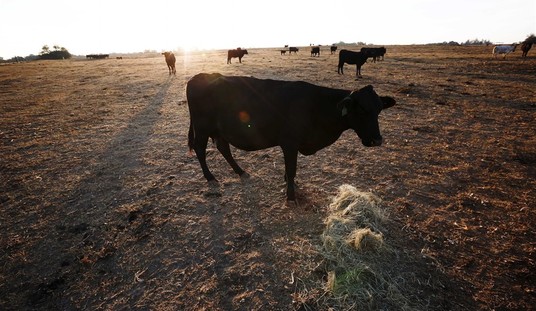A bipartisan group of governors — including Republicans Mary Fallin (Oklahoma), Scott Walker (Wisconsin), Gary Herbert (Utah), and Democrats Mike Beebe (Arkansas), Jack Markell (Delaware), and Mark Dayton (Minnesota) — traveled to Washington today to meet with President Obama and members of Congress (separately, heh) in an effort to ensure that state concerns’ aren’t being ignored as we edge closer to the fiscal cliff.
A half-dozen governors emerged from meeting with President Obama on Tuesday to publicly urge him and Congress to resolve the pending fiscal crisis as soon as possible because the uncertainty, as one put it, “is creating havoc.”
“You’ve got to come together and get this done,” said Gov. Gary Herbert of Utah, a Republican. “This impacts the economy.” …
For many of the governors, time is of the essence because they are busy putting together their own state budget proposals now for unveiling in January or February. Without knowing how the federal government will act, they could veer between surplus and deficit in short order. “We have decisions that we have to make,” said Gov. Mary Fallin of Oklahoma, a Republican and the association’s vice chairman.
The governors have got to keep their own budgets in line, and it’s a task that’s made infinitely more difficult with the federal government playing tug-of-war. With it looking increasingly plausible that Democrats are ready and willing to take us over the financial edge, they’re looking for some assurance that their own state finances aren’t going to get bowled over.
If I’ve said it once, I’ve said it a dozen times: This administration seems to have an aptitude for inducing uncertainty not quite like any other. It’s not so much that the states (or the Pentagon, or entitlement programs, or specific subsidies, or what have you) don’t deserve cuts — our federal budget is calamitously bloated, and we have got to make cuts both plentiful and ferocious in all areas, and turn a lot of what the federal government now undertakes back over to the more efficient private sector. The real problem is that the way the federal government is currently going about it (to the relatively tiny extent that they are at all, ugh) means that many entities’ fiscal fates are hanging in the immediate balance, and they’re going to have to deal with whatever the new conditions might be on the fly. Uncertainty like this has a draining economic impact, it’s going to take its toll — the same way it has throughout the first four years of the Obama presidency. So much always just has to be last-minute, still-unwritten, to-be-determined with this White House; as Peggy Noonan noted the other day, it’s just the Obama way:
The election is over, a new era begins—and it looks just like the old one. A crisis is declared. Confusion, frustration, and a more embittered process follow. This is . . . the Obama Way. Nothing has changed, even after a yearlong campaign that must, at times, have looked to him like a near-death experience. He still doesn’t want to forestall jittery, gloom-laden headlines and make an early deal with the other guy. He wants to beat the other guy.
You watch and wonder: Why does it always have to be cliffs with this president? Why is it always a high-stakes battle? Why doesn’t he shrewdly re-enact Ronald Reagan, meeting, arguing and negotiating in good faith with Speaker Tip O’Neill, who respected very little of what the president stood for and yet, at the end of the day and with the country in mind, could shake hands and get it done? Why is there never a sense with Mr. Obama that he understands the other guys’ real position?








Join the conversation as a VIP Member